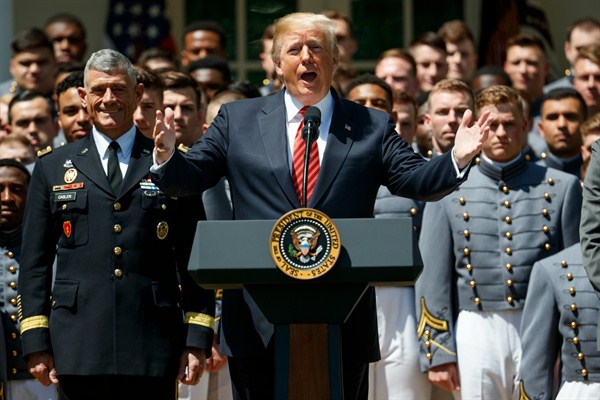What do the Iran nuclear deal, U.S. trade policy and North Korea summits all have in common? The answer is a persistent feature of U.S. foreign policy under President Donald Trump: uncertainty.
Trump’s election in November 2016 brought more questions than answers about the future of American foreign policy. Would Trump follow through on his most provocative and incendiary campaign promises and threats, or use them as leverage to win concessions? Would he radically and durably reconfigure America’s global role, or find himself hemmed in by the inertial constraints of the international order?
What is so striking, and what the events of the past week have highlighted, is how many of those questions remain unanswered 18 months later. From the very beginning of his presidency, Trump’s declarations and first executive orders promised disruption, often in ALL CAPS on Twitter. But behind the scenes, the officials in charge of the day-to-day conduct of U.S. foreign policy succeeded in maintaining continuity, even if the resulting confusion damaged the administration’s credibility and coherence.

